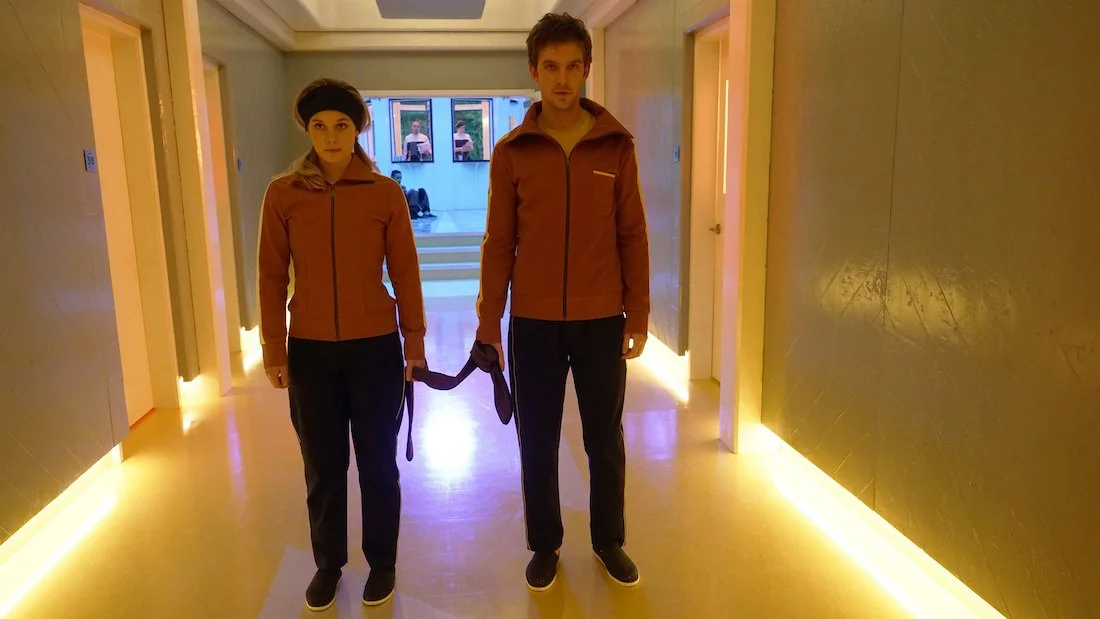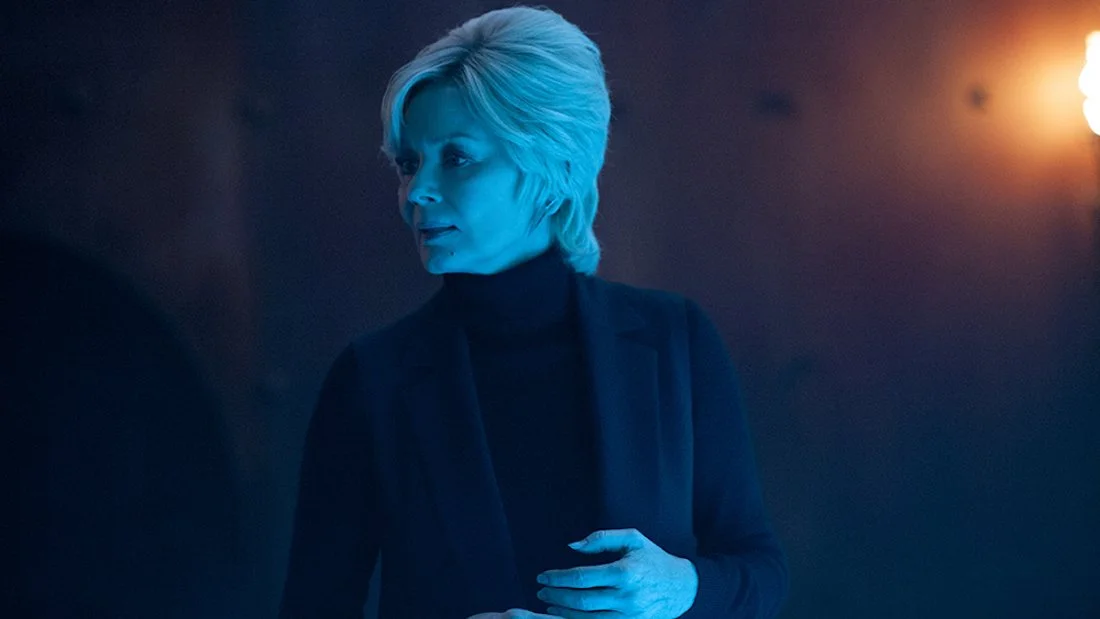Legion: The Show for People Who Don’t Know a Damn Thing About Mutants
When I was an adolescent in the late 1980s in Edmonton, Alberta, reading and collecting comic books was a really big deal. Most of my friends devoured anything that had Marvel’s name slapped on it, particularly the multitude of Spider-Man and X-Men books. I was the “loser” kid who read mostly DC comic books (The Flash, Justice League International, AKA the “funny Justice League,” Dr. Fate, and even a “SUGGESTED FOR MATURE READERS” book, Green Arrow—I loved the Emerald Archer, but having gratuitous violence and occasional nudity was an added bonus for this horny teen), but I did read Iron Man and The Silver Surfer, so I wasn’t a complete DC snob. Outside of the Batman books, my X-Men friends scoffed at my monthly comics pull list: Who cared if a guy could run really fast? A dorky guy in a gold helmet who casts spells? A guy with a bow and arrows—you’re kidding, right?
They couldn’t understand why I had never read a single issue of The Uncanny X-Men, the flagship title of Marvel’s mutant characters. I didn’t even know the difference between all the monthly mutant books Marvel released: The Uncanny X-Men, X-Factor, X-Force, Excalibur, the adjective-less X-Men…it was exhausting. The only character I knew was Wolverine and that’s only because my friends talked incessantly during recess over how cool that he was a badass and Canadian. (Despite Wolverine not being created by actual Canadians, he was drawn and plotted in a memorable run on The Uncanny X-Men by Canadian superstar artist-writer John Byrne, who worked a long time at Marvel before leaving to revamp DC’s Superman books in the late ‘80s.)
Decades later, I felt a pang of déjà vu when I decided to check out Legion, the new “mutant” TV series that premiered on the FX cable channel in 2017. I had gotten to know some of the “X” characters after seeing Bryan Singer’s enjoyable X-MEN and X2: X-MEN UNITED romps in the early ‘00s, but I was still a mutant novice and I had stopped reading comic books by the late ‘90s. There were plenty of superhero TV shows to watch (the CW’s “Arrowverse” stable of low-budget DC shows, Netflix’s inter-connected Marvel shows, ABC’s Agents of SHIELD, etc.), but Legion was from the guy who created the brilliant anthology series, Fargo, Noah Hawley. The trailer made it seem like this new comic book show would be a slick sci-fi/horror series and best of all—no silly spandex!
It's not like Stan Lee and Jack Kirby had invented the variety of abilities and powers displayed by Marvel’s mutants when they created The Uncanny X-Men in 1963. Characters with telekinesis, laser beam eyes, giant bird-like wings for flight, accelerated healing abilities, and many other talents were already the stuff of imagination found in classic science fiction stories in pulp magazines. Lee and Kirby used the mutant angle as an allegory for minority rights, a clever parallel to the civil rights movement in the United States in the 1960s. Hawley’s Legion also uses allegory to provide commentary on mental health and self identity, but the series strove to scare, confuse, and compel its viewers to continue watching each week. Legion’s protagonist, David Haller (the always engaging Dan Stevens of THE GUEST fame), better known to X-Men comic book fans as Legion, is a beautiful, troubled young man, diagnosed with schizophrenia, having endured a history of mental health issues and run-ins with the law, now currently residing in a surreal, time-bending mental hospital, Clockworks, after a suicide attempt. When he meets fellow patient, Syd Barrett (not the Pink Floyd band member and played by Rachel Keller), a fellow mutant, he is smitten; he immediately asks her to he his girlfriend in a manner that is both sweet and very awkward and a wee bit creepy (though his life has just become a whole lot more complicated). David escapes Clockworks with the help of fellow mutants and a kindly psychiatrist, Dr. Melanie Bird (Jean Smart), who informs him that he isn’t schizophrenic, but actually an exceptionally talented, powerful mutant, and the series delves into his exploration of those powers.
In some ways, Legion is not unlike the classic TV series The Incredible Hulk (1978-1982), one that adapted the Hulk (sans purple pants and alliterative alter ego), but kept it grounded by having David Banner (the late, great Bill Bixby) travel from town to town (a la Richard Kimble in the classic noir TV series The Fugitive) helping ordinary people with their problems, with nary a supervillain in sight. (To be fair, the Hulk doesn’t have a memorable rogues gallery like Batman, Flash, or Spider-Man.) Though Legion is primarily a horror TV series, its explanation of mutants and their special abilities is far more grounded, with realistic human emotions and reactions and digestible dialogue far removed from the purple prose Sir Patrick Stewart recited in the X-MEN movies. Unlike The Incredible Hulk, Legion isn’t afraid to delve into its science fiction and horror trappings (I still feel very bad for David’s best friend, Lenny (Aubrey Plaza), but saying anything more would be spoiling a lot of the series), but without the juvenile sight gags/gore that would be later seen in the superhero satire streaming series, The Boys.
Legion eschews colorful costumes (but not snazzy, retro-style tracksuits) and epic physical battles of good and evil in favour of unnerving, labyrinthine plotting, icy cool characters, dark humor, and a scattering of horrific scenes featuring the aftermath of mutant powers (sorry again, Lenny). In fact, the word “mutant” is used very sparingly in the show: While revisiting the Season One Blu-ray set (sadly, neither 20th Century Fox nor its later owner Disney have ever graced the series with a complete Blu-ray set, but I digress), I didn’t hear a lot of “mutant” or the awkward exposition that plagued the aforementioned X-MEN movies. Any Easter eggs for X-Men fans are lost on clueless viewers like me, but that neither detracts from enjoying the series nor distracts we ignorant folks from the overall narrative. (Besides, my head is already filled with arcane Star Trek and DC Comics knowledge, so I’m good, thanks.) Easter eggs are fine, so long as showrunners don’t ask viewers to do a lot of homework by watching other movies and TV shows to fully understand what is happening in a single TV show, as the producers of the Marvel Cinematic Universe eventually realized with their onslaught of hyper-connected Disney+ streaming shows and theatrical films. (What phase is the MCU in now? I couldn’t tell you, but I did enjoy She-Hulk.) Viewers don’t need to have Legion explicitly be connected to the greater X-Men universe for the series to work effectively and I’m grateful.
Amid the horror and science fiction elements, Legion’s narrative structure is very deliberately paced: It’s a slow-moving, opaque speed that can easily turn off viewers better suited for Two and a Half Men or Big Bang Theory reruns. Having fed on a steady diet of cryptic, glacially-paced, and just plain weird TV shows like Twin Peaks, Lars von Trier’s The Kingdom, and Space: 1999, a show like Legion is a fascinating and pleasurable viewing experience. Having a series with an unreliable narrator like David is exhilarating, as it adds to the horror and mystery of his experience and asks viewers to discern what’s real and what’s an illusion as they watch. Having shadowy, sinister agents like “The Eye” and the always-welcome Hamish Linklater chasing after David and his merry band of mutants, with the Big Bad, the Shadow King, always permeating the background, is very tense: Events as they unfold are not always what they seem, characters change sides, live, die, betray one another, and I love it. It may frustrate some viewers who switch it off angrily, but it’s the complicated fuel that gives me hope for the future of genre television.
I grew up as a comic book reader and I carry that nostalgia with me whenever there are new movies or TV shows featuring Superman or Batman. (Meanwhile, I’m still waiting for James Gunn to greenlight a Blue Beetle/Booster Gold superhero buddy comedy movie.) The operatic, soap-opera nature of comic book narratives helped fuel my interest in offbeat, sophisticated TV shows and eccentric narratives and when something special like Legion comes along, I take notice. I do worry that Hollywood relies too heavily on superhero movies and other established intellectual properties and not enough on original ideas, but when talented writers like Noah Hawley can create a masterful genre exercise like Legion, I can forgive it a little bit. Plucking an obscure X-Men character like David Haller and centering a thoughtful science fiction-horror concept around him creates an original series that can attract people who have never read a comic book. Tales of characters imbued with terrifying and god-like powers is as old as humanity and a contemporary addition like Legion illustrates that one needs not to possess an encyclopedic knowledge of X-Men lore to enjoy it. It's a series that is decidedly not for everyone, but there’s nothing wrong with that: Not every film or TV show needs mass consumption to be appreciated. The X-Men references in Legion may go right over my head, but it doesn’t diminish my enjoyment as an engaged viewer. If only my childhood X-Men-reading friends could see me now—hey, I still don’t want to read your comic book mutant melodramas, but if more attention and care is given to shows like Legion, I feel like a belong to the club, if only temporary.




